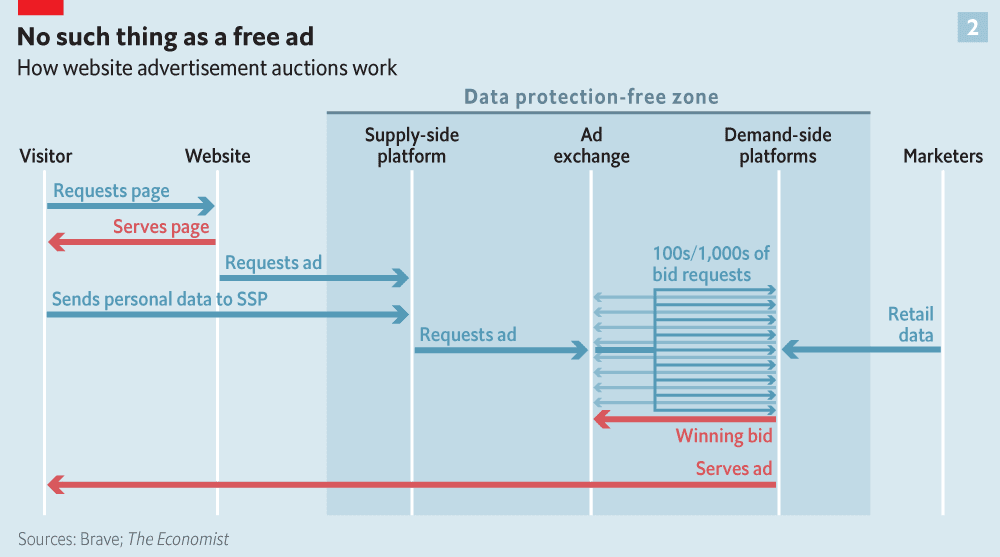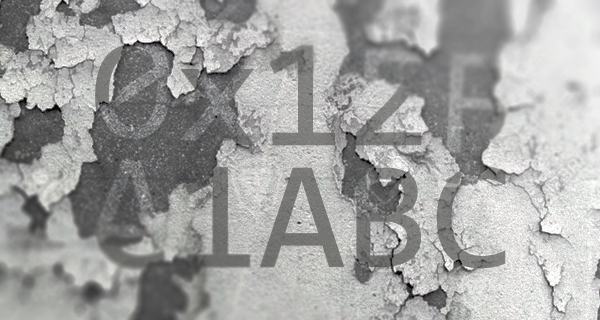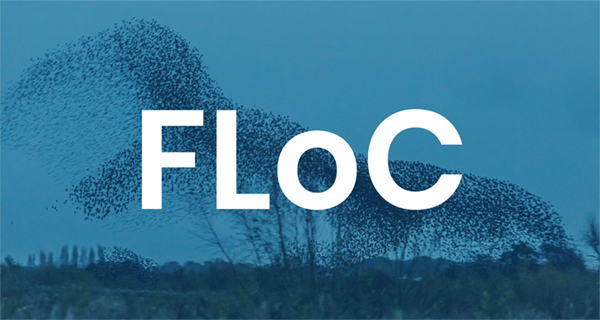Latest updates: read more about the RTB complaints.
The main briefing in The Economist features the “data protection-free zone” at the heart of the online advertising auction system.
This chart is reproduced with permission from The Economist. Download large chart (6000 x 3344 px).
As The Economist writes, the IAB and Google’s “Real-time bidding” ad auction system “builds in incentives to get as much data to as many bidders as feasible. And that is not particularly conducive to the protection of privacy.”
The adtech companies, including supply-side platforms, advertising exchanges, and demand-side platforms, participate in what The Economist calls a “data protection-free zone” (see diagram).
A second piece in The Economist this same week estimates that:
“the amount of data involved is far greater than that lost to hacking or carelessness in one-off data breaches”.
See “Big tech faces competition and privacy concerns in Brussels“, and “Europe’s GDPR offers privacy groups new ways to challenge adtech” in The Economist.







